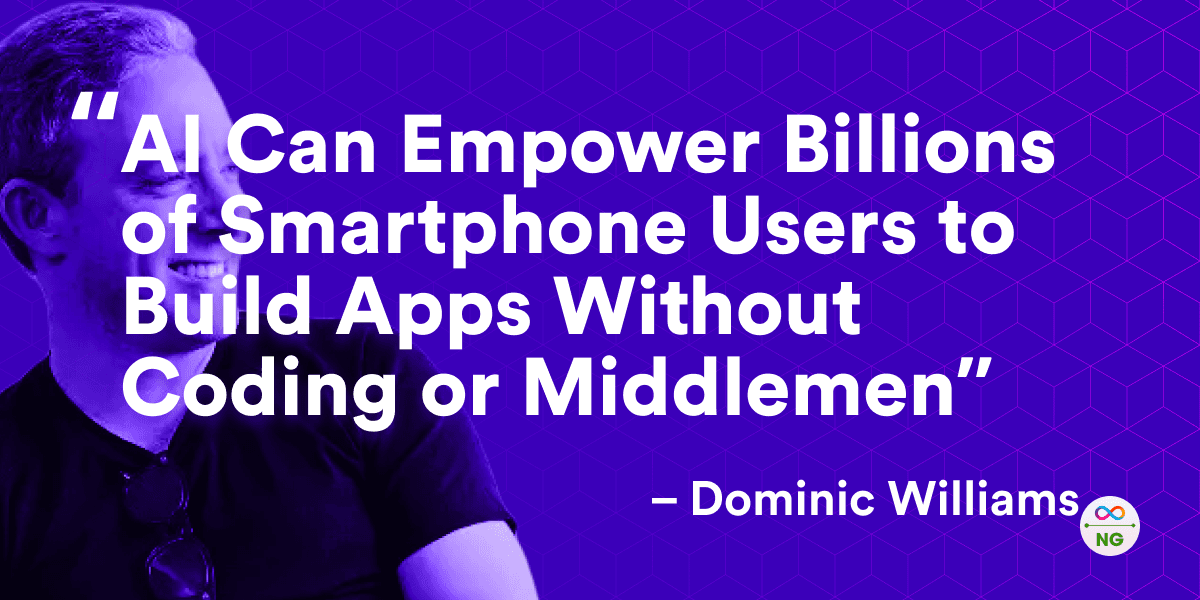
How ICP’s Vision Could Reshape Innovation Across Africa
In a recent interview with CCN.com, Dominic Williams, founder and chief scientist at the DFINITY Foundation, shared a bold and compelling vision: a future where billions of smartphone users around the world can build full-fledged apps without knowing how to code or relying on intermediaries.
Williams’ latest endeavour on the Internet Computer Protocol (ICP), in combining AI with blockchain infrastructure, promises to turn smartphones into full creative studios, empowering creators, entrepreneurs, and builders with little or no technical background to launch web apps entirely on-chain.
This vision could be revolutionary for Africa, a continent bursting with talent but often restrained by limited access to high-end hardware and technical education.
Africa’s Smartphone Surge vs. Laptop Gaps
According to Statista, there are over 500 million smartphone users in Sub-Saharan Africa as of 2023, with projections hitting 690 million by 2025. In contrast, only a fraction of this population owns a laptop, and even fewer have the high-spec devices or environments necessary for traditional software development.
In Nigeria, for instance, less than 11% of internet users have access to personal computers, while smartphone penetration surpasses 65%, with an even higher growth rate among young adults.
It means that while the devices exist in the hands of everyday people, the tools to build with them do not. Dominic Williams’ AI-powered vision seeks to close this gap, and ICP is uniquely positioned to make it real.
No Code. No Middlemen. No Limits.
The initiative, still in development, centres around “self-writing internet services”; AI systems that can understand a user’s app idea (described in natural language) and generate the app automatically, hosted entirely on ICP’s decentralized blockchain.
Imagine a young fashion designer in Lagos who wants to build an online store, or a farmer in Kenya seeking a platform to connect with buyers. With just a smartphone and a voice prompt, they could create a secure, scalable, and globally accessible dapp, without touching a single line of code or hiring a developer.
Here’s why this matters:
- It removes the cost barrier: No need to pay developers, designers, or middlemen.
- It removes the education barrier: No need to learn complex programming languages.
- It unlocks instant scalability: Apps live on-chain, ready to serve a global audience.
- It protects data ownership: Users own their software and data, not tech giants.
For African innovators, this isn’t just helpful — it’s game-changing.
The Economic Ripple Effect
The long-term impact of enabling millions of people to create their own tech solutions is hard to overstate.
- More job creators: When it’s this easy to build, more people launch ventures.
- Localized innovation: Solutions can be tailored to community needs without waiting for outside developers.
- Digital independence: Entrepreneurs are no longer dependent on foreign platforms or funding to innovate.
- Economic inclusion: Women, rural youth, and marginalized groups with smartphones can finally access the digital economy as builders, not just consumers.
According to the World Bank, Africa’s digital economy could contribute over $180 billion to GDP by 2025. With tools like AI-driven app creation on ICP, that number could climb higher, fueled not just by startups but by individuals who’ve never had access to the tech industry before.
Why This Isn’t Just a Tech Dream, but a Future Within Reach
Unlike other blockchains focused on finance or gaming, ICP is a general-purpose blockchain built to host actual web services, not just decentralized ledgers. This makes it the only platform today capable of running such AI-generated apps fully on-chain, with:
- No external cloud providers.
- Ultra-low costs.
- Native web speed.
- Chain Fusion to integrate with Bitcoin, Ethereum, and more.
What Williams and ICP are building isn't just for Web3 insiders — it’s for the common man with a dream and a smartphone.
In a continent where smartphones far outnumber laptops, where energy supply limits traditional tech access, and where innovation often comes from necessity, this development could unlock a new wave of digital entrepreneurship.
It could mean the next great African fintech, agritech, edtech, or social app is built not in Silicon Valley, but in a single-room apartment in Kampala, on a smartphone, through voice commands and AI, hosted securely on the blockchain.
Dominic Williams calls it “democratizing the internet.” In Africa, it could just mean freedom to build.
Article By: Mana Lamja